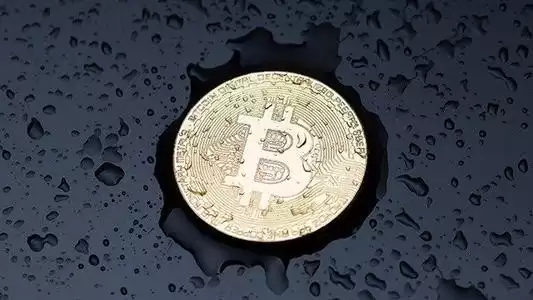-
 bitcoin
bitcoin $87959.907984 USD
1.34% -
 ethereum
ethereum $2920.497338 USD
3.04% -
 tether
tether $0.999775 USD
0.00% -
 xrp
xrp $2.237324 USD
8.12% -
 bnb
bnb $860.243768 USD
0.90% -
 solana
solana $138.089498 USD
5.43% -
 usd-coin
usd-coin $0.999807 USD
0.01% -
 tron
tron $0.272801 USD
-1.53% -
 dogecoin
dogecoin $0.150904 USD
2.96% -
 cardano
cardano $0.421635 USD
1.97% -
 hyperliquid
hyperliquid $32.152445 USD
2.23% -
 bitcoin-cash
bitcoin-cash $533.301069 USD
-1.94% -
 chainlink
chainlink $12.953417 USD
2.68% -
 unus-sed-leo
unus-sed-leo $9.535951 USD
0.73% -
 zcash
zcash $521.483386 USD
-2.87%
Does Bitcoin contract have a delivery period
Yes, Bitcoin contracts have a delivery period, varying depending on the specific contract and exchange, ranging from daily to annual settlements to facilitate the physical exchange of Bitcoin.
Nov 11, 2024 at 11:14 am

Understanding the concept of delivery periods is crucial for those trading Bitcoin contracts. This article delves into the intricate details of delivery periods within the Bitcoin contract market, aiming to provide clarity and guidance for traders.
What is a Delivery Period?In the context of Bitcoin contracts, the delivery period refers to a predetermined time frame during which the underlying asset, in this case, Bitcoin, is exchanged between the buyer and seller upon contract expiration. This period allows for the physical settlement of the contract, facilitating the transfer of ownership of the underlying asset.
Does Bitcoin Contract Have a Delivery Period?Yes, Bitcoin contracts typically have a delivery period. These contracts are designed to facilitate the physical exchange of Bitcoin, ensuring that the buyer receives the underlying asset at the contract's expiration. The delivery period varies depending on the specific contract and the exchange on which it is traded.
Types of Delivery PeriodsThere are several types of delivery periods commonly used in Bitcoin contracts:
- Daily Delivery: The contract expires and settles each day.
- Weekly Delivery: The contract expires and settles once a week.
- Monthly Delivery: The contract expires and settles once a month.
- Quarterly Delivery: The contract expires and settles once a quarter.
- Annual Delivery: The contract expires and settles once a year.
The choice of delivery period can significantly impact trading strategies. For instance, traders who prefer shorter delivery periods may aim to profit from short-term price movements. Conversely, those who opt for longer delivery periods may capitalize on longer-term trends in the Bitcoin market.
Additional Factors Influencing Delivery PeriodApart from the aforementioned factors, several other elements can influence the delivery period of Bitcoin contracts:
- Market Volatility: Increased volatility in the Bitcoin market may prompt exchanges to shorten the delivery period to mitigate risks.
- Blockchain Congestion: Slower transaction confirmation times on the Bitcoin blockchain can lead to extended delivery periods.
- Regulatory Environment: Changes in regulatory policies and guidelines can impact the delivery period of Bitcoin contracts.
Thorough understanding of delivery periods empowers traders with the ability to:
- Plan Trading Strategies: Knowledgeable traders can formulate trading plans that align with the delivery periods of their chosen contracts.
- Manage Risk: Understanding delivery periods helps traders effectively manage risks associated with price fluctuations during the delivery window.
- Maximize Profits: Strategic selection and utilization of delivery periods can enhance profit-making opportunities for traders.
Delivery periods are an integral aspect of Bitcoin contracts, enabling the physical exchange of the underlying asset upon contract expiration. Traders should carefully consider the type and duration of delivery period that best aligns with their trading strategies and risk appetite. By thoroughly understanding the intricacies of delivery periods, traders can optimize their trading decisions and enhance their probability of success in the Bitcoin contract market.
Disclaimer:info@kdj.com
The information provided is not trading advice. kdj.com does not assume any responsibility for any investments made based on the information provided in this article. Cryptocurrencies are highly volatile and it is highly recommended that you invest with caution after thorough research!
If you believe that the content used on this website infringes your copyright, please contact us immediately (info@kdj.com) and we will delete it promptly.
- UAE Investor Secures Major Stake in Trump-Linked Crypto Firm Amidst Shifting Geopolitical Tides
- 2026-02-02 07:10:01
- Pepe Meme Coin: Navigating the Hype, Price Predictions, and Future Outlook in 2026 and Beyond
- 2026-02-02 07:05:01
- Blockchain Gaming's Quiet Revolution: Unpacking Latest Trends and Industry Insights Amidst Market Shifts
- 2026-02-02 06:30:01
- IPO Genie, Tokenization, and YouTubers: The Big Apple's Next Big Bet on Democratized Wealth
- 2026-02-02 06:40:02
- Aptos in a Bind: Downtrend Deepens, But a Brief Relief Bounce Looms Before the Next Plunge
- 2026-02-02 07:00:01
- Pi Network, ATL, and Community: Navigating the Currents of a Mobile-First Crypto Movement
- 2026-02-02 07:00:01
Related knowledge

How to close a crypto contract position manually or automatically?
Feb 01,2026 at 11:19pm
Manual Position Closure Process1. Log into the trading platform where the contract is active and navigate to the 'Positions' or 'Open Orders' tab. 2. ...

How to understand the impact of Bitcoin ETFs on crypto contracts?
Feb 01,2026 at 04:19pm
Bitcoin ETFs and Market Liquidity1. Bitcoin ETFs introduce institutional capital directly into the spot market, increasing order book depth and reduci...

How to trade DeFi contracts during the current liquidity surge?
Feb 01,2026 at 07:00am
Understanding Liquidity Dynamics in DeFi Protocols1. Liquidity surges in DeFi are often triggered by coordinated capital inflows from yield farming in...

How to use social trading to copy crypto contract experts?
Feb 02,2026 at 07:40am
Understanding Social Trading Platforms1. Social trading platforms integrate real-time market data with user interaction features, enabling traders to ...

How to trade micro-cap crypto contracts with high growth potential?
Feb 01,2026 at 02:20pm
Understanding Micro-Cap Crypto Contracts1. Micro-cap crypto contracts refer to derivative instruments tied to tokens with market capitalizations under...

How to optimize your workspace for professional crypto contract trading?
Feb 01,2026 at 08:20pm
Hardware Infrastructure Requirements1. High-frequency crypto contract trading demands ultra-low latency execution. A dedicated workstation with a mini...

How to close a crypto contract position manually or automatically?
Feb 01,2026 at 11:19pm
Manual Position Closure Process1. Log into the trading platform where the contract is active and navigate to the 'Positions' or 'Open Orders' tab. 2. ...

How to understand the impact of Bitcoin ETFs on crypto contracts?
Feb 01,2026 at 04:19pm
Bitcoin ETFs and Market Liquidity1. Bitcoin ETFs introduce institutional capital directly into the spot market, increasing order book depth and reduci...

How to trade DeFi contracts during the current liquidity surge?
Feb 01,2026 at 07:00am
Understanding Liquidity Dynamics in DeFi Protocols1. Liquidity surges in DeFi are often triggered by coordinated capital inflows from yield farming in...

How to use social trading to copy crypto contract experts?
Feb 02,2026 at 07:40am
Understanding Social Trading Platforms1. Social trading platforms integrate real-time market data with user interaction features, enabling traders to ...

How to trade micro-cap crypto contracts with high growth potential?
Feb 01,2026 at 02:20pm
Understanding Micro-Cap Crypto Contracts1. Micro-cap crypto contracts refer to derivative instruments tied to tokens with market capitalizations under...

How to optimize your workspace for professional crypto contract trading?
Feb 01,2026 at 08:20pm
Hardware Infrastructure Requirements1. High-frequency crypto contract trading demands ultra-low latency execution. A dedicated workstation with a mini...
See all articles










































































